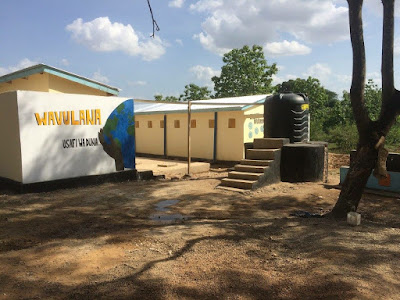So, this is my final blog post for this module. This has probably been one of the most challenging university projects, in being consistent at producing weekly blog posts for two different modules. However, it has been one of the most interesting and engaging projects I have completed to date.
Throughout this blog I have examined the hydrological impacts that have already and will occur in East Africa due to climate change. I have also reviewed this in the context on land use change. What is important to note is that climate change is not a future phenomenon, it has been occurring for many decades. What has been particularly interesting is that East Africa is an extremely diverse region, with different areas experiencing varying hydrological impacts. Therefore, there is a fundamental need to focus on regional and local aspects of climate change.
Climate change is not only changing the frequency of extreme weather events, but also seasonality, intensity and duration. During the coming century, increasing population, changing pattern of water use, and concentration of population and economic activities will pressurise Africa's water supply. Therefore, adaptive and mitigation strategies, both institutional and local are needed to be employed to reduce vulnerabilities, and allow this continent to flourish and develop more proportionally.
Remember in a warming world, not all Africa's taps will run dry.





Hi Rhona,
ReplyDeleteI've loved reading your blogs as it has been quite engaging and thought provoking. But what I would like to know is which country in the East African region shocked/interested you the most and why?
Many Thanks
S
Hi, thank you for your comment hope they were as reading for you to read as they were for me to write.
DeleteI would say one of my much earlier posts which focussed on Maize farmers in Tanzania. I looked at at a study which focussed on the Wami Basin, it just highlighted how localised the effects of climate change will be. It found that some parts of the basin will see increased yields, while some of the other parts will see decreased yields in Maize. Again it was just the realisation of the diversity in climates and its effects. If you find that interesting and have not yet come across that blog post, here is the link: http://waterinachangingworld.blogspot.co.uk/2016/11/farmers-in-tanzania.html